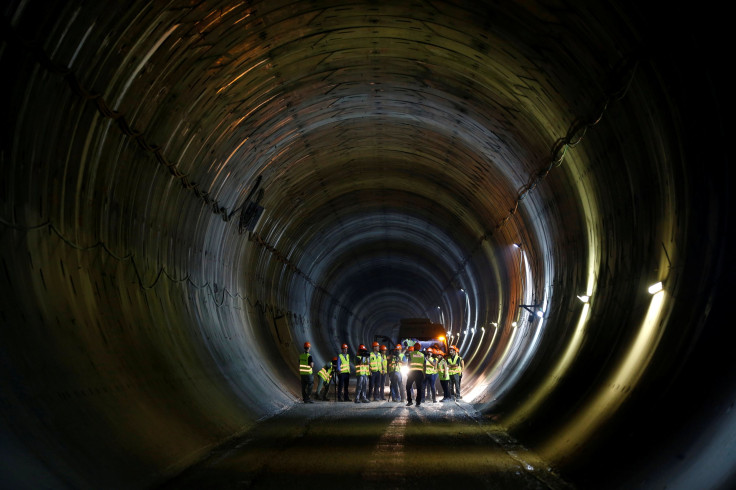Israel Plans Jerusalem-Tel Aviv Rail Line Amid Violence In Holy City

A new, high-speed rail line connecting the Israeli cities of Jerusalem and Tel Aviv is set to be complete within the next 18 months, Reuters reported Tuesday.
The project, spearheaded by the Israeli government's transportation ministry, is expected to cost some $2 billion and eventually drastically cut down the travel time between the two cities. It's expected that travel time from Tel Aviv, on the coast of the Mediterranean Sea, to the Jerusalem's Old City will be cut down to less than an hour.
Jerusalem has long been a city at the center of tensions in the Middle East. Neighboring Muslim countries like Saudi Arabia have challenged Israel's claim to the holy city. Clashes between Israelis and Palestinians continue, with more than 220 Palestinians and some 25 Israelis killed in the past 11 months, according to Al Jazeera. A number of stabbings of Israelis have occurred in Jerusalem's Old City, the planned location of the new train station. Some signs, however, have pointed to the possibility of peace. The Jerusalem Post reported rhetoric on Israel in Saudi Arabia is softening and there have at least been rumors of a summit between the leaders of Israel and Palestine.
The new Jerusalem train station (rendered here) is nearing completion; the rail line is set to open in early 2018. pic.twitter.com/h1Ttbgt9Lv
— Avi Mayer (@AviMayer) July 10, 2016
New rail line to connect high-tech Tel Aviv with holy Jerusalem https://t.co/zMNtraEqtv
— Reuters World (@ReutersWorld) September 6, 2016
The planned train line is an effort from the Israel to modernize travel to the city that's the center of tensions. As it stands, the commute via car from Tel Aviv can take two hours. A train line that dates back to the Ottoman empire currently winds along a 1 hour and 40 minute route between the two cities, carrying some 7,500 people per day. The idea behind the new train line is to bring Jerusalem closer to the rest of Israel.
"We are doing in Israel what was done 200 years ago in the United States, after World War Two in Europe and in recent decades in Asia," Transport Minister Yisrael Katz said Tuesday, promoting several planned new rail lines, according to Reuters. "The main aim is to connect Jerusalem to the rest of the country."
The new train line is reportedly expected to serve some 50,000 commuters per day and travel nearly 100 mph. "This is beyond a transportation revolution," transportation ministry spokeswoman Batsheva Segev said in late August, via the Jerusalem Post. "It will improve the economy, the environment, and it’s fast. It will allow people to live in Jerusalem and work in Tel Aviv, and help bring government workers and entrepreneurs to the capital with ease to improve the economy."
© Copyright IBTimes 2024. All rights reserved.






















